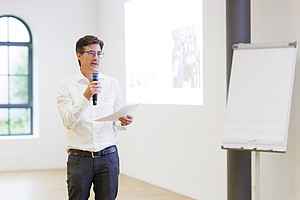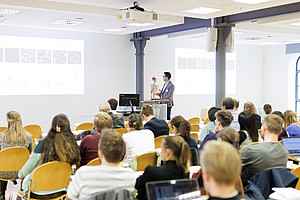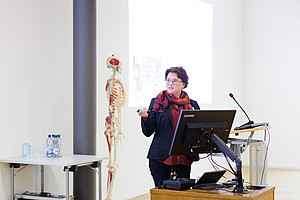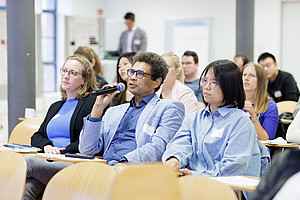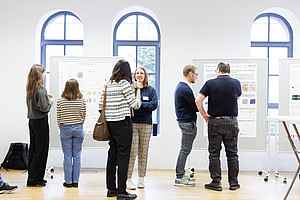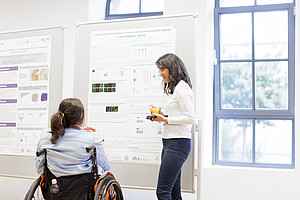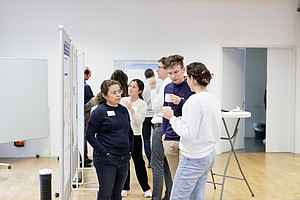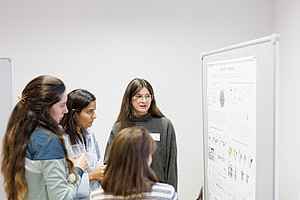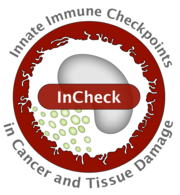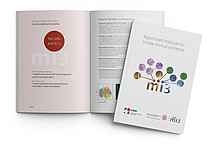Sie befinden sich hier
Inhalt
The Mannheim Institute for Innate Immunoscience (MI3) of Heidelberg University serves as a cross-sectional hub for innovative immunology research with an emphasis on innate immunity. In close connection with the four research areas of the Medical Faculty Mannheim and the University Medical Center Mannheim, the MI3 explores the functions of innate immune cells and their tissue specific cross-talk with the adaptive immune system, non-immune and malignant cells and pathogens.
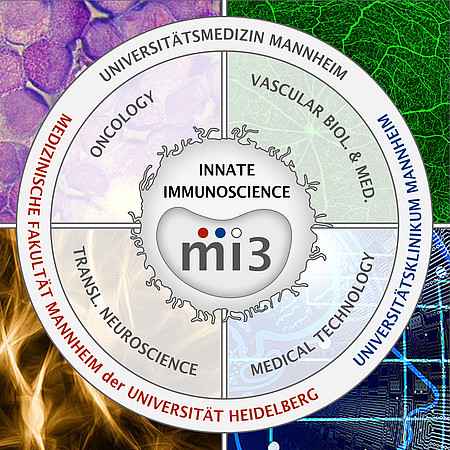
News
Essential function of an E3 ubiquitin ligase in removing stalled ribosomes
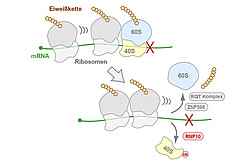
Scientists at MI3 uncovered a novel function of the E3 ubiquitin ligase RNF10 in quality control of protein synthesis: RNF10 promotes the dissociation of 40S small ribosomal subunits from the mRNA when ribosomes are stalled either during initiation or elongation of translation. RNF10 thereby allows cells to grow in presence of ribotoxins.
Press release at the Medical Faculty Mannheim (German language)
MI3-Retreat
On September 16, 2024 the MI3 - Mannheim Institute for Innate Immunoscience - invited to its yearly retreat in the “Alte Brauerei” in Mannheim. With 78 participants, 11 poster presentations and 16 talks by scientists from MI3's core and associated areas as well as of members of the Institute of Immunology, Medical Faculty Heidelberg, this has been a very well attended, highly interactive and successful event. In addition to excellent scientific talks, poster flash talks were included into the program, to give junior scientists the opportunity to announce their posters. The flash talks were followed by lively discussions at the poster session. Existing now more than 5 years, the MI3 serves as hub bringing together immunologists from Mannheim and Heidelberg fostering scientific exchange and collaborations. In addition to the annual retreat, the MI3 and the Institute of Immunology in Heidelberg, organise monthly “HD-MA Immunology Talks” with national and international excellent speakers that are very well received by the lively Heidelberg/Mannheim Immunology community.
ERC Advanced Grant for Prof. Dr. Michael Platten

Prof. Dr. Michael Platten has been awarded an ERC Advanced Grant, the prestigious funding from the European Research Council. The neurologist will use the ERC funds to develop personalized cellular immunotherapies against malignant brain tumors.
Press release at the Medical Faculty Mannheim (German language)
Circulating tumor cells provide detailed insights into cancer heterogeneity

An improved method for isolating circulating tumour cells paves the way for tailor-made therapies in personalized oncology: In a recent study, scientists from the DKFZ-Hector Cancer Institute at the University Medical Center Mannheim show that it is possible to obtain sufficient circulating tumour cells using an enrichment technique of blood cells (diagnostic leukapheresis) to be able to comprehensively analyse the tumour and its heterogeneity.
Press release at the Medical Faculty Mannheim (German language)
Newly discovered mechanism of T cell control may interfere with cancer immunotherapies
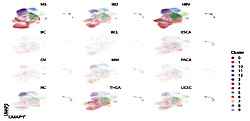
If activated T cells carry a certain marker protein on their surface, they are kept in check by natural killer (NK) cells, another cell type of the immune system. In this way, the body presumably prevents destructive immune reactions from “overshooting”. Researchers from the German Cancer Research Center (DKFZ) and the University Medical Center Mannheim (UMM) discovered this and showed that NK cells can also impair the effect of cancer therapies with immune checkpoint inhibitors (ICI) in this way and be responsible for the rapid decline of therapeutic CAR-T cells in cellular immunotherapies. By interfering with this newly discovered mechanism, it may be possible to improve the efficacy of CAR-T cell therapies.
Paul Martini Prize for therapeutic vaccines against brain tumors
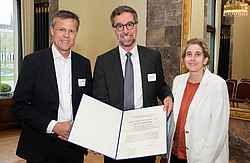
Professor Dr. med. Michael Platten awarded for the development of therapeutic vaccines against malignant brain tumors
Press release at the Medical Faculty Mannheim (German language)
Kontextspalte
Mannheim Institute for
Innate Immunoscience
Medical Faculty Mannheim
TPMA2, 2. OG
Franz-Volhard-Str. 6
68167 Mannheim
Phone +49 621 383-71430
mi3@medma.uni-heidelberg.de
MI3 Scientific Report 2022
Directorate
Adelheid Cerwenka, Prof. Dr. Director
Michael Neumaier, Prof. Dr.
Co-Director
Georg Stoecklin, Prof. Dr. Dr.
Co-Director

